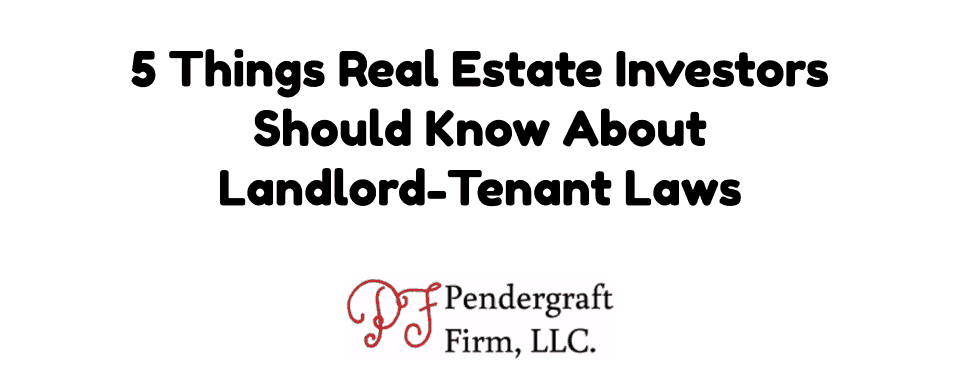Before investing in rental property buy and hold Real Estate Investors need to become familiar with their local landlord obligations. While I cannot cover every jurisdictions nuances, I can cover what I call Universal landlord-tenant laws that every real estate investor should know. From there, you can dive deeper to see exactly how these universal laws are applied in your jurisdiction.
#1 Where To Find Your Local Landlord-Tenant Resources
Knowing where to find the rules that apply to you is a great place for real estate investors to start. There is a very good chance that your jurisdiction (or a neighboring jurisdiction) has a landlord-tenant handbook or resource written for non-attorneys. You may be able to find resources at your local courthouse, landlord-tenant help center, or even online. Try googling “Insert My County Here” landlord-tenant handbook. Here is what I found by Googling the Montgomery County Landlord-Tenant Handbook.
The caveat with online handbooks and print materials handed out at your local landlord-tenant court is (1) that they may be dated and (2) are a secondary source material Overall, they do a good job of covering the basics.
#2 Leases Found Online Are Not Good, Use Local Attorney-Drafted Leases
9 times out of 10 leases found online are not good for your situation. There is a surprisingly good chance that your jurisdiction has very specific local landlord-tenant laws that should be addressed in your lease agreements. I practice in Prince George’s County, Baltimore City, and Montgomery County. All of these jurisdictions are in Maryland and within Driving distance of one another, but I would use a different lease agreement for each one. For example, in Prince George’s County a 30 day lease termination notice is fine. However, in Baltimore City and Montgomery County the minimum is 60. In Baltimore City Tenants have the right of first refusal if a Landlord wants to sell a property. A lease agreement needs to abide by State, Federal, and local law. For the savvy real estate investor, a local attorney-drafted lease agreement is the way to go.
#3 Make Sure You Have a License and Your Property is Up To Code
Real estate investors can get in a lot of trouble if their jurisdictions require them to have a rental license and they do not. In many cases this results in a landlord being unable to recover damages from a tenant. Contact your local landlord licensing department to see if you need to have a license before renting.
In addition, make sure your rental property is up to housing code before renting. You could face civil or criminal penalties if you rent a house that is not up to code.
#4 You Must Have A Good Rent Money Tracking System
Real Estate Investors must properly track when rent money is paid. You can do this by having a rent ledger that shows exactly when rent is due, and when it is paid or not paid. Printing off a your bank statement and highlighting where your tenant has made deposits is not insufficient.
In the worst case scenario your jurisdiction requires you by law to properly document your tenants rental history, and if you do not they will throw your case out. This is what the jurisdictions I practice in do. However even if your case is not thrown out, you won’t recover nearly as much as you would have if you have proper documentation.
#5 The Security Deposit is NOT Your Money
A security deposit is not your money. You cannot treat a security deposit like it is your money. If you do then you may have to pay your tenant back triple the security deposit even if they damage your property, and attorneys fees. Generally speaking, security deposits must be stored in a certain type of bank account and investors can only use it after meeting certain conditions. The remainder of the deposit should also be returned to the tenant after they vacate, possibly with interest depending on your jurisdiction. Know your Jurisdiction’s local deposit rules. I write about Maryland’s here
How to Avoid The Pitfalls That Cost Landlords Thousands of Dollars
If you enjoyed reading this, then you’ll enjoy my book Planlord – The Landlord Primer: How To Avoid The Legal Pitfalls That Cost Landlords Thousands of Dollars. In the book I cover more Universal landlord-tenant laws that Real Estate Investors should know. If you have any questions related to this post feel free to drop a comment!
- How Can I Evict An Employee or Caregiver I Fired That Refuses to Leave in Maryland? - February 6, 2023
- Can A Tenant Leave Property Before The Lease Agreement Expires in Maryland? - January 29, 2023
- Can I Be Evicted or Locked Out By My Wife, Husband, Boyfriend, or Girlfriend in Maryland? - January 28, 2023


Facebook Comments